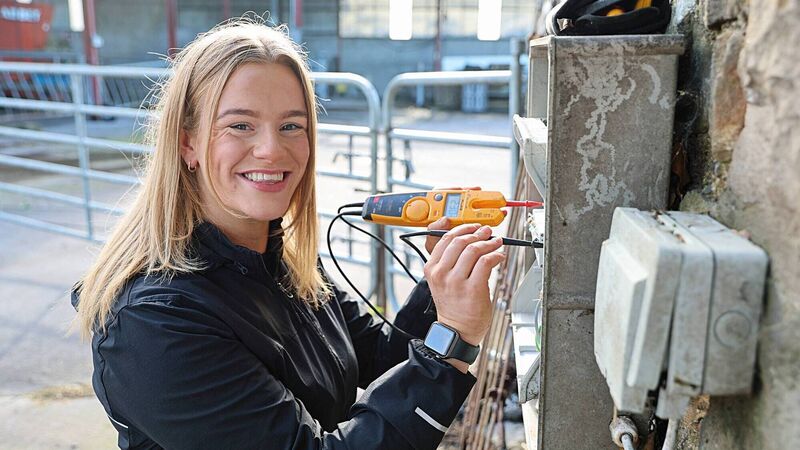Workplace Wellbeing: Volunteering becomes its own reward

Fully qualified electrician Emma McAree pictured on her family's farm outside Emyvale, Co. Monaghan. Emma has been volunteering with the Niall Mellon trust since she was 15. Photo Lorraine Teevan
Census 2022 revealed that 711,379 people in Ireland are volunteers. The unpaid work they do on behalf of others makes a huge difference to people’s lives, including their own.
Volunteering connects people to their community and helps them make new friends and expand their social network. It’s been proven to be good for physical and mental health, by combating depression and providing people with a sense of purpose. It also allows people to explore their interests and can even enable them to gain experience in new sectors, opening the door to new careers.











